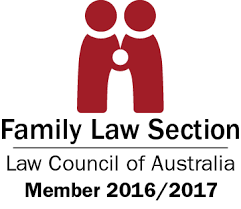Associate
A person to whom an associate benefit is payable and is the term used to describe the non-member spouse with an entitlement to Military Super benefits following a family law split.
Associate A benefit
The entitlement of an associate in Military Super as a result of the split of a member’s benefit that is in growth phase under a court order or superannuation agreement under Part VIIIB or Part VIIIAB of the Family Law Act 1975. An associate A benefit comprises member and employer taxed components of the transfer amount and any member untaxed component of the transfer amount.
Associate B benefit
The entitlement of an associate in Military Super as a result of the split of a member’s benefit that is in growth phase under a court order or superannuation agreement under Part VIIIB or Part VIIIAB of the Family Law Act 1975. An associate B benefit comprises employer untaxed component of the transfer amount.
Associate pension
The associate entitlement in Military Super as a result of the split of a member’s benefit in payment phase under a court order or superannuation agreement under Part VIIIB or Part VIIIAB of the Family Law Act 1975.
Base amount
A dollar figure set out in a court order or superannuation agreement that is allocated to the non-member spouse from the member spouse’s superannuation entitlement.
Court order
An order issued by a court with family law jurisdiction, such as the Family Court or the Federal Magistrates Court. A court order can be obtained by consent if the parties agree.
De facto relationship
Is defined under section 4AA of the Family Law Act 1975 which provides that a person is in a de facto relationship with another person if:
- the persons are not legally married to each other
- the persons are not related by family
- having regard to all circumstances of their relationship, they have a relationship as a couple living together on a genuine domestic basis. A de facto relationship can exist even if one of the persons is legally married to someone else, or in another de facto relationship.
Employer taxed component of a Military Super transfer amount
An amount based on the member’s productivity benefit.
Employer untaxed component of a Military Super transfer amount
That part of the employer benefit that is not taxed—e.g. an amount based on a former DFRDB member’s untaxed productivity and employer benefit.
Family law value
The value of the person’s super under the Family Law (Superannuation) Regulations 2001 (using the scheme specific factors and methodology approved by the Attorney General in the Family Law (Superannuation) (Methods and Factors for Valuing Particular Superannuation Interests) Approval 2003 Volume 2).
Growth phase
The situation where the member spouse is a contributor or is a person to whom a
preserved benefit applies.
Member spouse
The party whose superannuation entitlement is being split under a family law splitting order or superannuation agreement under Part VIIIB or Part VIIIAB of the Family Law Act 1975.
Member taxed component of a Military Super transfer amount
An amount based on the member’s contributions and interest.
Member untaxed component of a Military Super transfer amount
An amount based on the contributions made by the member to DFRDB prior to making an election to transfer to Military Super.
Non-member spouse
The other party to the family law splitting order or superannuation agreement under Part VIIIB or Part VIIIAB of the Family Law Act 1975.
Operative time
The date of effect of the split—this is the date specified in a court order; or 4 business days after a superannuation agreement is served on a Trustee.
Payment phase
The situation where the member spouse is in receipt of a pension from Military Super.
Scheme value
The value of the person’s super using factors and methodology determined by an actuary based on the most recent long-term cost report.








